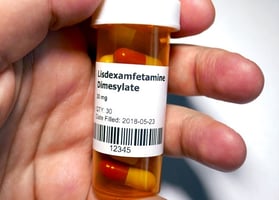An opioid receptor antagonist reduces a preference for sweet, high-fat foods in binge eaters, British and American scientists reported online November 13 in Molecular Psychiatry.
The finding was based on a double-blind, placebo-controlled, one-month study with 63 volunteers who were binge eaters and obese.
"This study attempts to take advantage of an established finding from basic research that the endogenous opioid system is involved in the control of food intake," B. Timothy Walsh, M.D., a professor of pediatric psychopharmacology at Columbia University and chair of the DSM-5 Eating Disorders Work Group, said in an interview. "The most provocative finding is that an experimental mu-opioid receptor antagonist reduced preference for sweet, high-fat foods.... This is a promising area for future research, including determining whether these findings will lead to useful clinical applications."
To read more about research on binge-eating disorder, see Psychiatric News here and here. Also see Clinical Manual of Eating Disorders from American Psychiatric Publishing.
(Image: Darren Green/Shutterstock.com)





